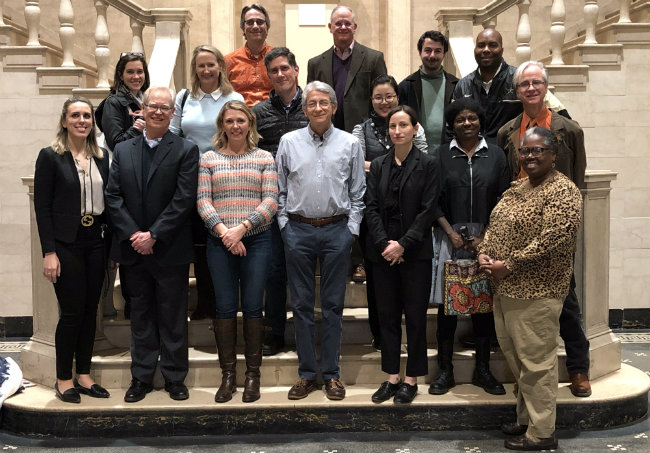
by Samantha Brown
The University Arts Council announced today that it has established four additional subcommittees to focus on thematic and operational areas: benchmarking/peer institutions, community connections, programming and space/infrastructure.
“The University Arts Council is especially fortunate to have a wide variety of Vanderbilt arts stakeholders represented—students, faculty, administrators and staff—and we created these subcommittees with that in mind,” said Bonnie J. Dow, dean of academic initiatives for the College of Arts and Science, professor of communication studies and council chair. “This means that our subcommittees are equipped to be especially thorough and informed in their tasks of documenting Vanderbilt’s current resources as well as future opportunities.”
The subcommittees were established to work on the goals of the University Arts Council, which was created last fall by Interim Chancellor and Provost Susan R. Wente to advocate for the arts and related scholarship at Vanderbilt.
“The performing and visual arts are alive, well and thriving across Vanderbilt’s campus, with students and faculty engaging creatively within the university community and the city of Nashville,” said Carolyn Huebl, professor of violin at the Blair School of Music, and council vice-chair. “The University Arts Council exists to support the innovative artists at work at Vanderbilt. Further study of these topics will help the council find new ways to support the endeavors of the artists who make Vanderbilt University such a wonderful place to teach and study.”
The council’s four subcommittees have each held initial meetings to discuss goals, priorities and action items, and to develop timelines to accomplish their goals.
The subcommittees, which are led by current members of the University Arts Council, have set the following goals for the remainder of this academic year:
- Benchmarking/Peer Institutions Subcommittee
- Determine a list of benchmarking criteria to help guide our conversations.
- Document current status of arts visibility, venues and governance at Vanderbilt in comparison to our peers.
- Community Connections Subcommittee
- Document and determine existing arts partnerships locally and regionally.
- Discern future opportunities for fruitful partnerships.
- Programming Subcommittee
- Document the wide range of existing arts programming at Vanderbilt, including programming emanating from student activities, academic programs and university initiatives.
- Envision future programming opportunities as well as possibilities for increasing the visibility of current arts programming.
- Space/Infrastructure Subcommittee
- Document the current available space and infrastructure for the arts at Vanderbilt.
- Determine future space and infrastructure priorities that will further support the arts at Vanderbilt.
In addition to the new subcommittees, the University Arts Council has two previously formed subcommittees: the University Art Collections Governance Subcommittee, which provides governance over the art collections, and the Arts and Humanities Micro-Grant Fund Committee, which provides oversight to the Arts and Humanities Micro-Grant Fund.
“One of the key realizations of the University Arts Council thus far is the staggering array of arts resources on our campus, many of which could be more visible,” said Dow. “Vanderbilt is well-equipped to move toward a future in which experience with the arts is an easily accessible aspect of our student, staff and faculty experience. The arts should be part of the everyday experience at Vanderbilt.”
The Vanderbilt community is invited to provide feedback through the University Arts Council website.